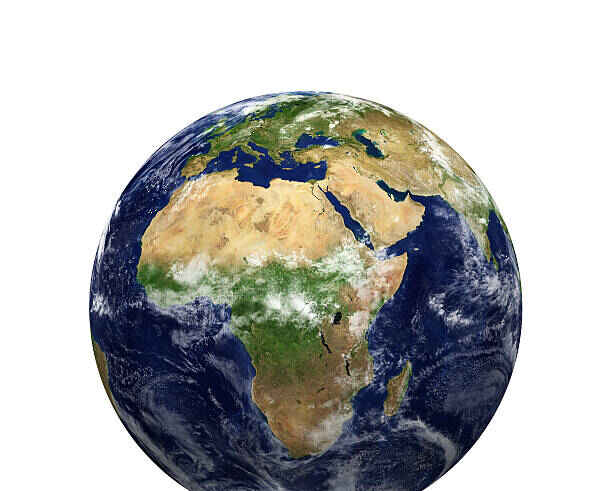
In recent years, Russia has made great progress in spreading its influence across Africa, eliciting both intrigue and concern on a global scale, also with the ingoing conflict in Ukraine, Russia has sharpened its focus in Africa. According to some observers, Moscow’s growing desire to present itself as an ally of African countries while also stoking anti-Western sentiments might transform the continent into a flashpoint in Russia’s worldwide geopolitical battle with the West.
Russia is encouraging the building of nuclear power stations throughout the continent. In 2020, Russia’s State Atomic Energy Corporation, Rosatom, secured a $25 billion loan to start construction of Egypt’s first nuclear power station, a 4800 MW facility near El Dabaa, this facility costs a total of $60 billion. Also, Rosatom has entered into partnership agreements with 17 new African states, including Ethiopia, Nigeria, Rwanda, and Zambia. Most African governments do not consider nuclear accords to be realistic due to their high prices. However, the massive budgets of these projects present numerous potentials for corruption, providing political incentives for well-placed Kremlin and African government officials.
One of the main reasons for Russia’s rising influence is the active new international order, which aims to be multipolar. The Kremlin’s attempts to counteract western dominance have reverberated smoothly throughout Africa. In addition, Russia’s military presence in African countries is significant. Wagner Group mercenaries are operating in Mali, Libya, and the Central African Republic. In exchange for their efforts, the Wagner forces get access to raw minerals like gold. The Wagner Group also helps to expand the Kremlin’s political influence. In Mali, for example, after ten years of assistance in the battle against Islamist extremists, France withdrew its soldiers after failing to have the intended impact. Mali has also asked the UN to remove its MINUSMA peacekeeping force. Mali is obviously separating itself from past colonial countries and engaging more closely with Russia.
Diplomatically, Russia’s main objective is to acquire greater support for its vision of a multipolar world order built on reduced Western power. At the United Nations, it presses African allies for favourable votes on subjects such as the Ukraine conflict and seeks to undermine UN peacekeeping deployments and other multilateral initiatives. Experts believe Moscow is looking to Africa to demonstrate that it is not an international reject, despite persistent Western sanctions.Moscow seeks military, political, and economic interests in Africa. Russia’s military priority is mostly on arms commerce, but it is also looking to extend its operational presence, notably by securing agreements to establish new military sites. Still, Russia’s formal military engagement on the ground is presently restricted to an agreement to build a naval base in Sudan.
Several North African nations have previously shown their willingness to strengthen their business ties with Russia. Russian President Vladimir Putin has announced plans to construct a free trade zone with four North African nations, Egypt, Morocco, Tunisia, and Algeria to increase Moscow’s political and economic influence on the region. This action took place at the end of the Russia-Africa Summit in St Petersburg, which gathered 49 African delegations and 17 African heads of state in an effort to establish a “new level of mutually beneficial partnerships” between Russia and Africa. Moscow sought to ingratiate itself with African leaders by wiping out debts worth $23 billion and announcing military cooperation deals with over 40 African countries, but there were also some tensions over Russia’s blockade of Ukrainian grain exports, which has contributed to soaring global food prices and high levels of inflation in North Africa.
North Africa’s energy landscape has long been dominated by Western companies, but Russia’s entry into the area reflects a determined plan to diversify its energy alliances and lessen reliance on conventional markets. This is more than just a desire for economic gain, it is a geopolitical strategy that is changing alliances and power balances. One of the most visible expressions of this geopolitical change is Russia’s aggressive participation in oil-related initiatives. Algeria, a major participant in the global oil market, has seen a growing partnership with Russia. Gazprom, the Russian state-owned energy company, has been involved in significant conversations and agreements, expressing its intention to explore and utilize Algeria’s large oil reserves.
The significance of Russia’s expanding influence in North Africa extends beyond just economics. It is a determined effort to undermine the current order, offering an alternative to countries that may be dissatisfied with their conventional Western ties. Russia’s engagement is more than just a trade, it is a geopolitical narrative that provides a new vision of partnership one that resonates with states with grievances about historical inequities and a desire for a more multipolar world.
In conclusion, Russia’s growing influence in Africa, in diplomatic relationships and military arrangements symbolizes an important moment in global affairs. This shifting narrative in Russia’s relationship with Africa extends beyond economic reasons, contributing to the continuous restructuring of the global order.
By The European Institute for International Law and International Relations
References
Ferragamo, M. (2023, December 28). Russia’s growing footprint in Africa. Council on Foreign Relations. https://www.cfr.org/backgrounder/russias-growing-footprint-africa#chapter-title-0-6
Siegle, J. (2023, April 17). Decoding Russia’s economic engagements in Africa. Africa Center for Strategic Studies. https://africacenter.org/spotlight/decoding-russia-economic-engagements-africa/
Wesolowski, K., & Gatanazi, E. (2023, July 28). Fact check: Russia’s influence on Africa – DW – 07/27/2023. dw.com. https://www.dw.com/en/fact-check-russias-influence-on-africa/a-66310017















